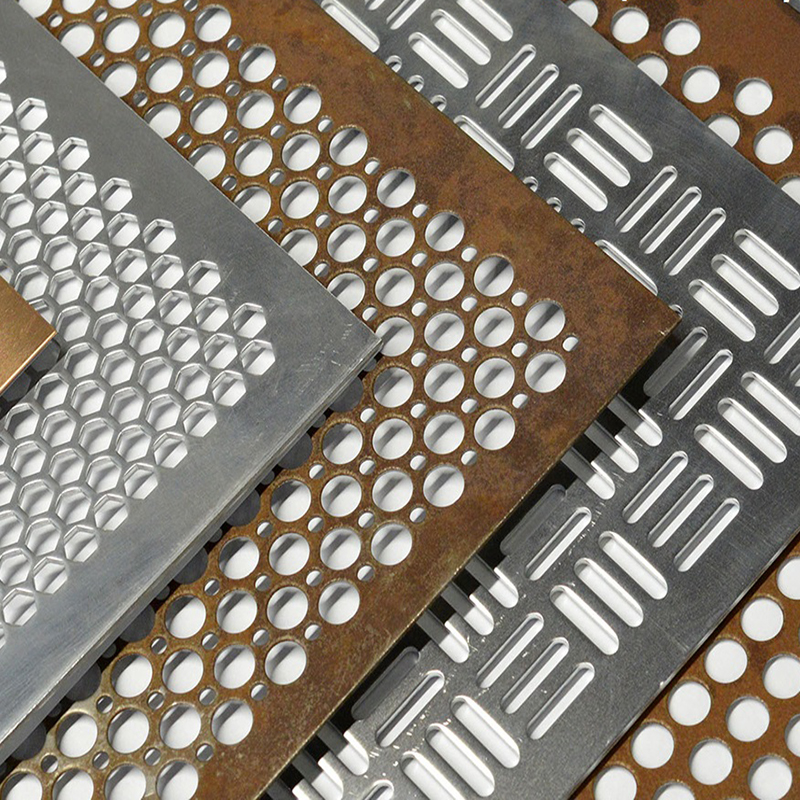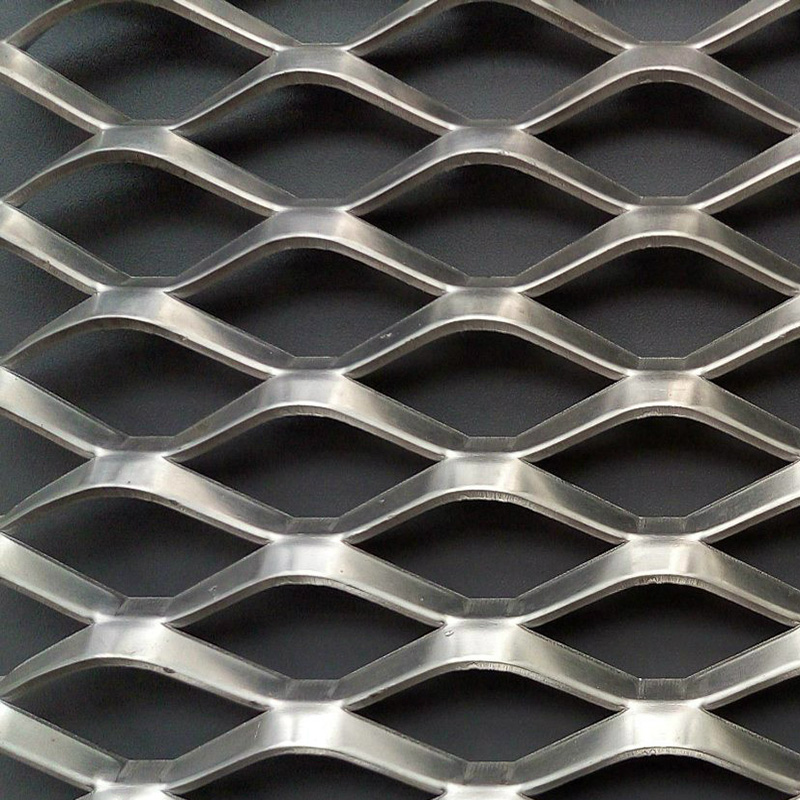-
+86 15030157877
-
sales@galvanizedmetalmesh.com
When it comes to versatile, durable, and high-performance metal mesh solutions, HEBEI WEICHUN WIRE MESH TRADE CO., LTD. stands as your trusted manufacturer and supplier. With decades of expertise in wire mesh production, we specialize in delivering top-quality Expanded Metal Mesh and Perforated Metal Mesh designed to meet the rigorous demands of industrial, architectural, and security applications.
Our Expanded Metal Mesh is manufactured through a precise cutting and stretching process, creating a strong, lightweight, and cost-effective material with excellent ventilation and visibility. Ideal for walkways, platforms, fencing, and machine guards, this mesh provides superior slip resistance and structural support while maintaining an open design for airflow and light penetration. Available in various materials—including galvanized steel, stainless steel, and aluminum—our expanded mesh is built to withstand harsh environments, making it perfect for construction, oil and gas, and transportation industries.
For projects requiring precision and aesthetic appeal, our Perforated Metal Mesh offers unmatched versatility. With custom hole patterns, sizes, and materials, this mesh is widely used in architectural facades, acoustic panels, filtration systems, and decorative screens. Whether you need fine perforations for filtration or bold designs for modern buildings, our perforated mesh can be tailored to your exact specifications. The durability and corrosion resistance of our products ensure long-lasting performance in both indoor and outdoor settings.
Why is Perforated Sheet Protected with a Thin Layer of Oil?
Perforated metal sheets are often coated with a thin layer of oil during manufacturing and storage to preserve their quality and functionality before they reach the end user. This protective measure serves several critical purposes, primarily focused on preventing corrosion, maintaining surface integrity, and ensuring optimal performance in various applications.
One of the primary reasons for oiling perforated sheets is corrosion prevention. Metal, especially carbon steel, is highly susceptible to oxidation when exposed to moisture or humidity. Even stainless steel can develop surface stains or minor rust under certain conditions. The thin oil layer acts as a temporary barrier, shielding the metal from environmental factors such as humidity, rainwater, or condensation during transportation and storage. This is particularly important for perforated sheets destined for outdoor use, such as architectural facades, industrial filters, or machinery guards, where long-term exposure to the elements could compromise structural integrity.
Another key benefit of oiling is protection against scratches and surface damage. Perforated sheets undergo significant handling during cutting, packaging, and shipping. The oil layer reduces friction between stacked sheets, preventing scratches or abrasions that could affect the material's appearance or performance. For applications where aesthetics matter—such as decorative panels or interior design elements—maintaining a flawless surface is crucial. The oil also helps repel dust and debris, keeping the sheets clean until installation.
Additionally, the oil coating facilitates easier fabrication and processing. When perforated sheets arrive at fabrication shops for further cutting, bending, or welding, the oil minimizes tool wear and improves workability. Some manufacturers use anti-fingerprint oils that not only protect against corrosion but also make the sheets easier to handle without leaving visible marks.
What Opening Types Are Most Common in Perforated Sheet?
Perforated metal sheets are available in a wide variety of opening types, each designed to meet specific functional and aesthetic requirements. The choice of pattern affects not only the appearance of the sheet but also its strength, airflow, light transmission, and filtration capabilities.
Round holes are by far the most common perforation type due to their versatility and ease of manufacturing. They provide excellent structural integrity while allowing for efficient airflow and drainage, making them ideal for applications such as industrial filters, machine guards, and acoustic panels. The holes can be arranged in staggered (60-degree) or straight (90-degree) patterns, with staggered layouts offering greater material strength and visual appeal. Round perforations are also widely used in architectural designs where a balance between transparency and privacy is desired.
Square and rectangular openings are another popular choice, particularly in applications requiring precise screening or sorting. These shapes allow for larger open areas compared to round holes of the same size, making them suitable for vibrating screens, grain separators, and conveyor belts. Square perforations are often used in modern architectural facades where a geometric aesthetic is preferred. The sharp corners, however, can create stress points, so material thickness must be carefully considered for load-bearing applications.
For specialized uses, slotted holes (long, narrow rectangles) provide unique directional properties. The slots can be oriented to control the direction of airflow, light, or sound waves, making them valuable in HVAC systems, speaker grilles, and sunshades. Slotted perforations also offer high open area percentages while maintaining good structural rigidity. Other less common but functional patterns include hexagonal (honeycomb), decorative designs (stars, diamonds), and custom shapes tailored to specific project needs.
Customization Options for Perforated Metal Sheet
One of the greatest advantages of perforated metal sheets is their high degree of customization, allowing them to be tailored for both functional and aesthetic purposes across countless applications. Manufacturers offer numerous options to ensure the final product meets exact project specifications.
Material selection forms the foundation of customization. Perforated sheets can be fabricated from various metals, including carbon steel, stainless steel, aluminum, copper, and brass, each offering distinct properties. Carbon steel provides strength and affordability, while stainless steel adds corrosion resistance for harsh environments. Aluminum is lightweight and ideal for architectural features, whereas copper and brass are chosen for their decorative appeal and natural patina over time.
Hole patterns and sizes can be precisely engineered to suit specific needs. Beyond standard round, square, or slotted shapes, custom designs—such as decorative motifs, logos, or intricate geometric patterns—can be created using advanced CNC punching technology. Hole diameters can range from less than 1mm for fine filtration to several inches for heavy-duty screening applications. The spacing between holes (known as pitch) can also be adjusted to control the open area percentage, affecting factors like airflow, light diffusion, and structural strength.
Surface treatments and finishes further enhance performance and appearance. Options include galvanization for corrosion resistance, powder coating for color and durability, anodizing for aluminum sheets, and even polished or brushed finishes for decorative projects. Perforated sheets can also be embossed or textured to improve slip resistance or add visual depth.
For structural applications, sheet thickness and overall dimensions can be customized to meet load-bearing requirements. Thicker gauges provide added strength for industrial flooring or machinery guards, while thinner sheets are suitable for lightweight screens or decorative panels. Manufacturers can also pre-fabricate sheets into curved, bent, or welded forms to simplify installation.





